You may be a musician who wants to record their music, or just a person wanting to develop his custom ringtone. In either case, a physical or virtual audio mixer is required, whether it be analog or a dedicated audio mixer software.
But you need to have some technical knowledge to make optimal use and funk up your music/sound.
Here we are to give you the knowledge you need and some amazing sound/audio mixer software that could be perfect for you. So buckle up, and get ready to level up the harmoniousness of your creativity!
In this article
Part 1. The 10 Best Sound Audio Mixers For Effective Results
When it comes to voice adjustment, various audio mixer software offers extensive functionality. Depending on your needs, you can choose the right audio editor. Go through the following list to pick the most desired audio mixer to improve your audio listening experience:
1. Wondershare Filmora
The first tool on our list is a versatile video editor with diverse audio-editing functionalities for desktop and mobile. From basic volume adjustment to AI audio tweaking, Wondershare Filmora offers all the necessary tools. If you are editing audio within a video, you can isolate the vocals and edit it without impacting the voice. When your audio has varying volumes throughout the playback, the Audio Normalization feature can be used to maintain uniformity.
As for the mobile application, it offers a volume-adjustment utility to help you increase or decrease the original volume. In addition, users can benefit from the one-click noise reduction feature and cancel all the background noise from their videos. This sound mixer for PC lets you use the fade-in and fade-out effects to create a smooth streaming flow.
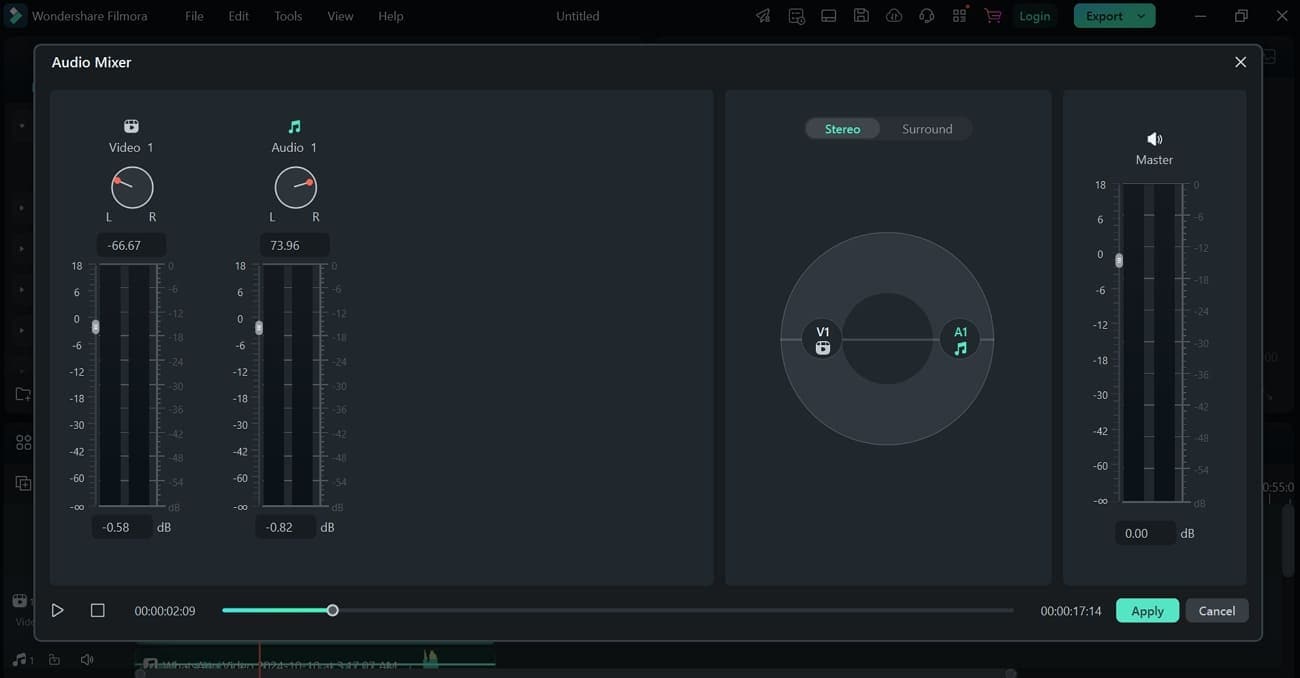
Powerful AI video editor for all creators
Audio Format Support
AAC, AC3, AIF, AIFF, AU, FLAC, M4A, MKA, MP2, MP3, OGG, WAV, WMA, CAF
Device Compatibility
Windows, macOS, iOS, Android
Pricing Plans
| Plan | Pricing |
| Basic | $9.99/month |
| Advanced | $34.99/year |
| Perpetual | $49.99 |
A Walkthrough of Audio Mixing Through the Filmora Desktop
The desktop version of Filmora provides a simple method of audio mixing, including other editing functionalities. Follow the instructions below to learn how you can use the sound mixer software feature on the PC version.
Step 1. Import a Video For Audio Mixing
To initiate, open Filmora on the PC and click "New Project" from the main interface. On reaching the next screen, tap the "Import" button to select the desired video file from your device.
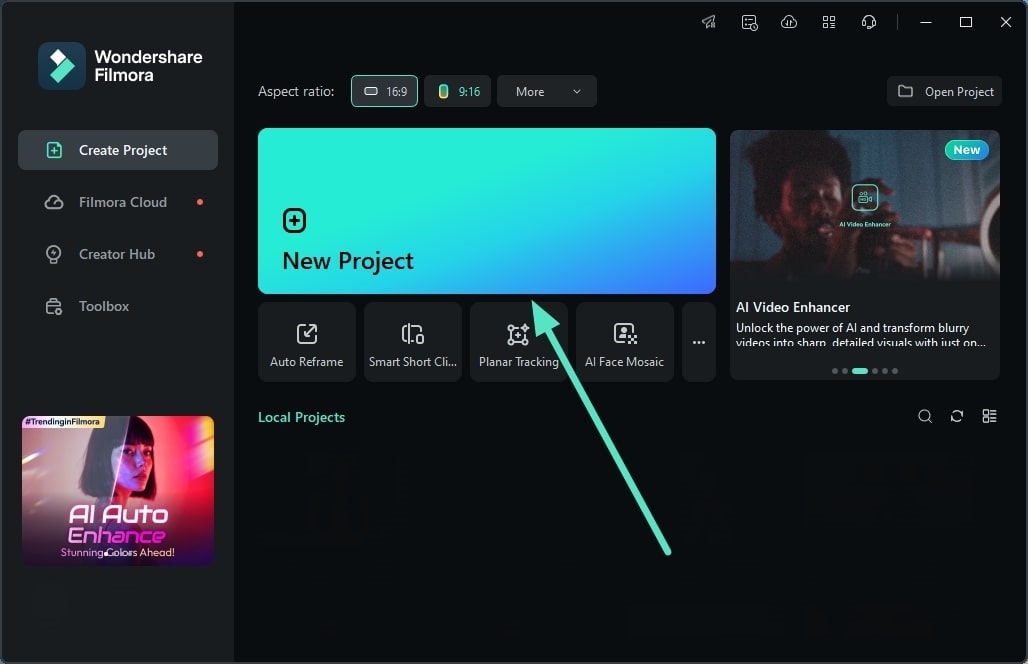
Step 2. Use the Audio Mixing Feature
After dropping the video onto the timeline, access the bar above the timeline and click the "Audio Mixer" icon.
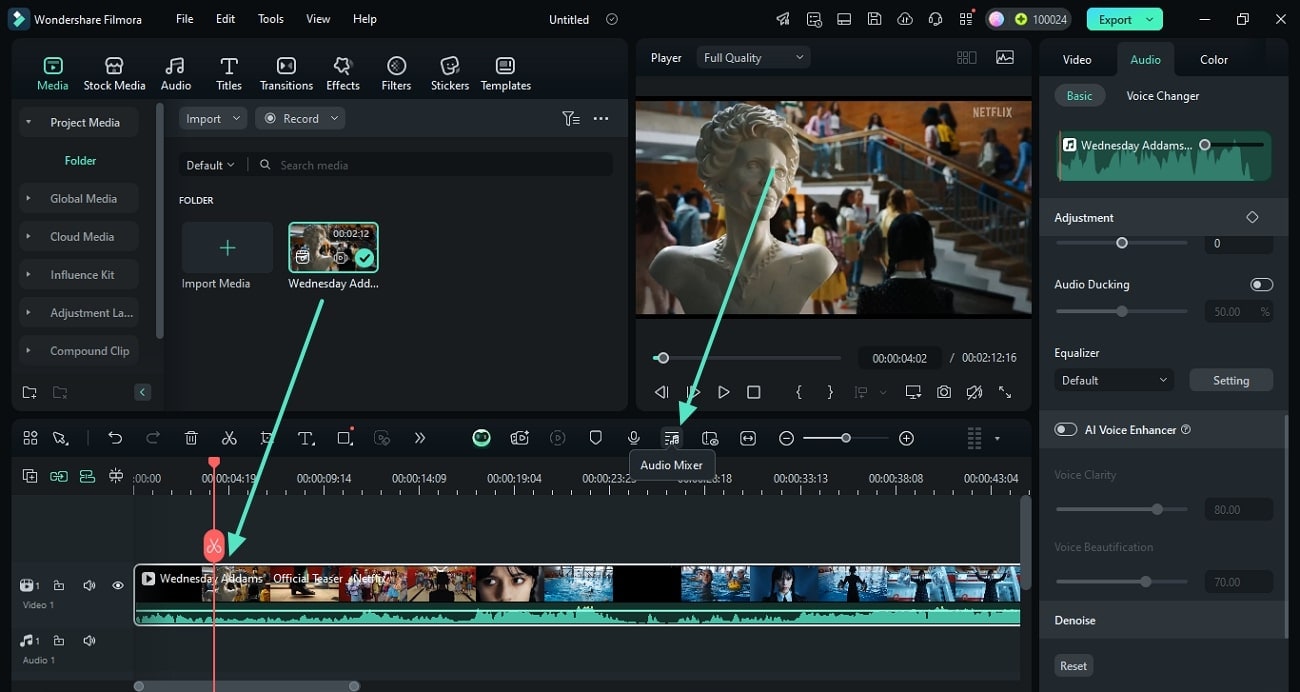
Step 3. Adjust and Apply the Audio Mixing Effects
As you are directed to the "Audio Mixer" window, select the video and audio frequencies and set the "Master" frequency for the video. After entering all the desired settings, click the "Apply" at the bottom right of the window.
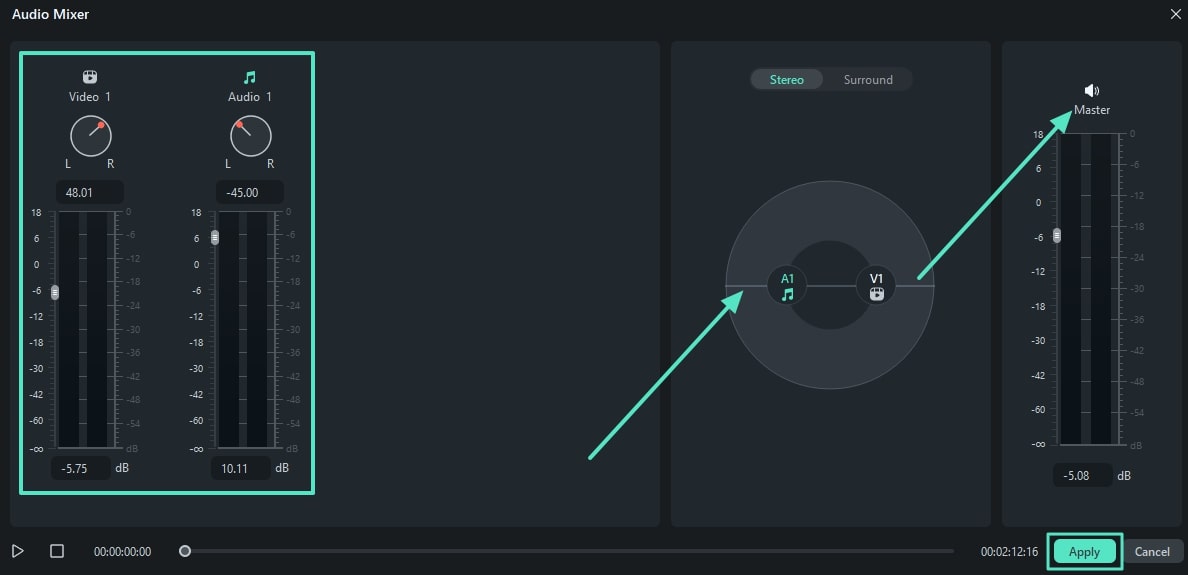
Powerful AI video editor for all creators
Step 4. Apply Further Audio Editing Features
After applying the audio mixer feature, access the "Audio" editing panel to enter the "Basic" section. From this panel, you can make impactful audio editing like normalization, sound balance, audio channel settings, and more. Once your video is perfect, click the "Export" button at the top right corner.
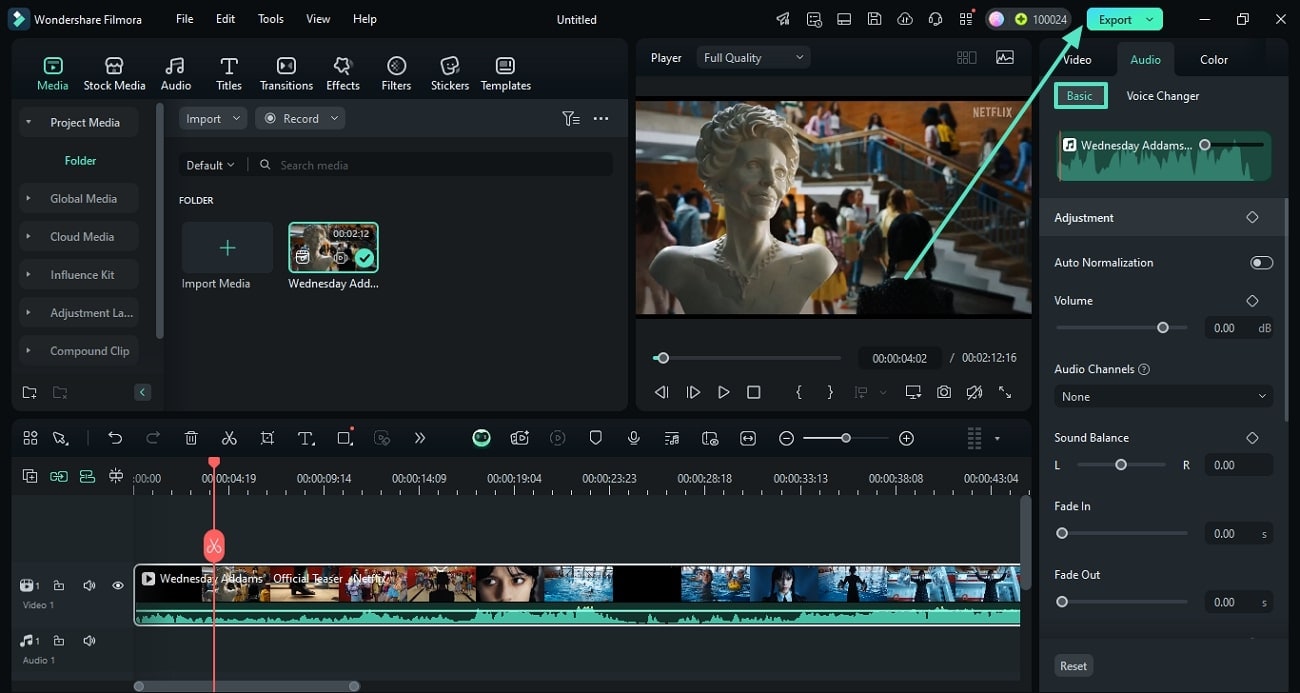
Step 5. Use the Export Window to Save the Video
On reaching the "Export" window, enter the video settings and click the "Export" button at the bottom right corner.
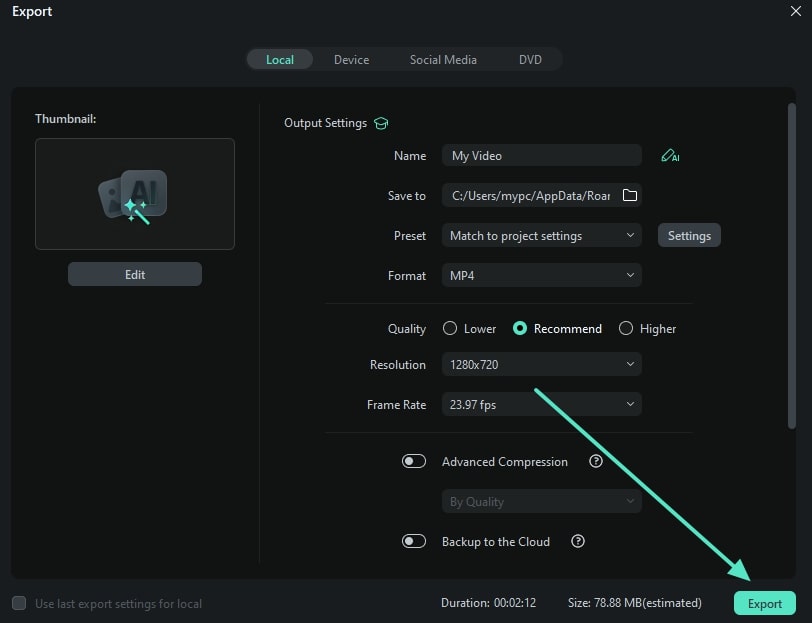
Powerful AI video editor for all creators
A Must-Follow Guide For Audio Mixing with the Filmora App
When you need to apply some minimal audio settings and effects to your videos, using the mobile version is the best. The following guide tells you how to use this sound mixer on the Filmora App:
Step 1. Start a New Project By Importing Videos
Start the process by opening the Filmora App [Android/iOS] on your phone and tapping the "New Project" button to unveil your media library. After selecting the desired video from the library, press "Import" to bring these videos to the editing interface.
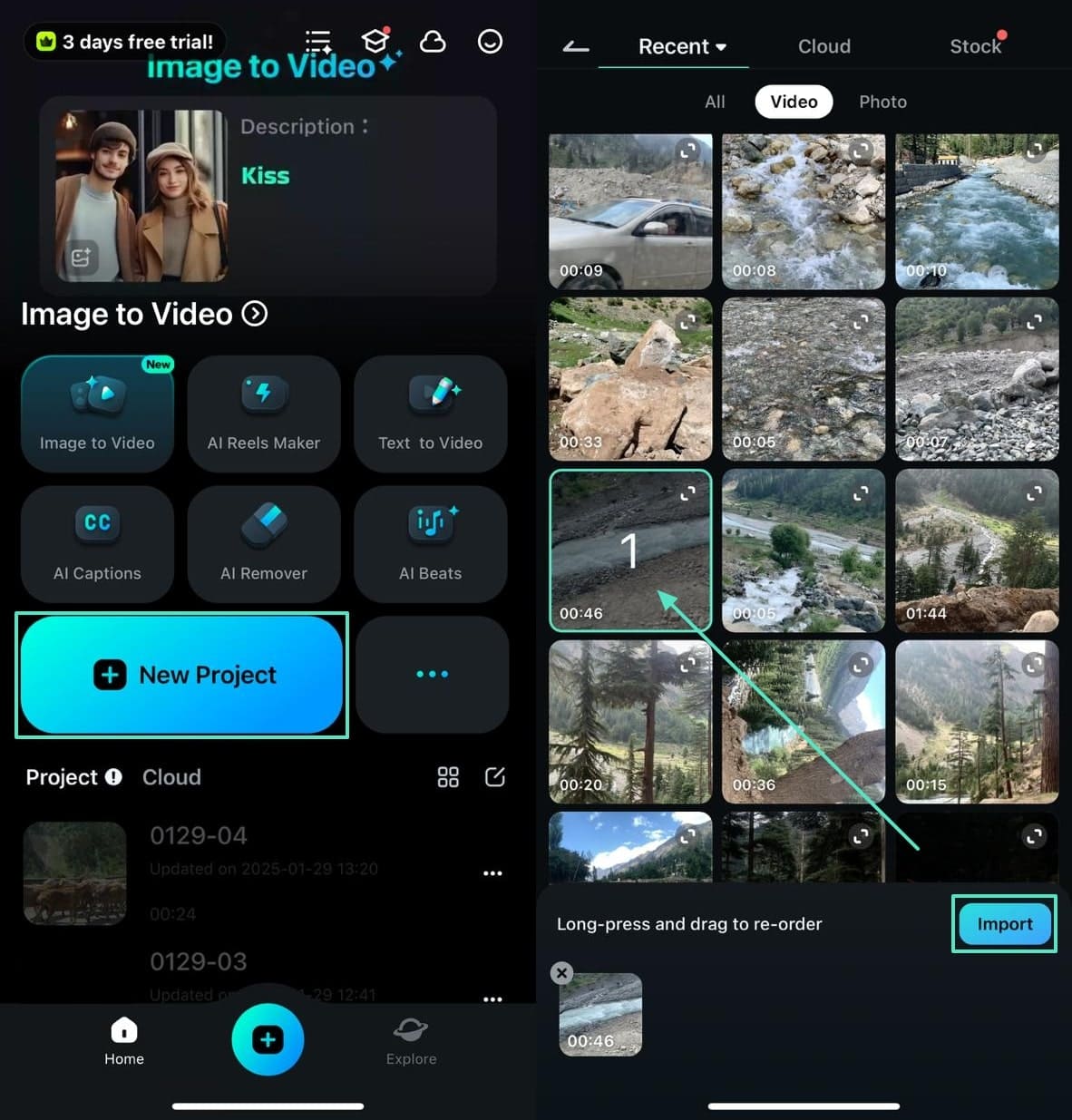
Step 2. Access the Volume Settings of The Video
Once the video is imported, tap on the editing timeline to enable the toolbar and press the "Volume" icon.
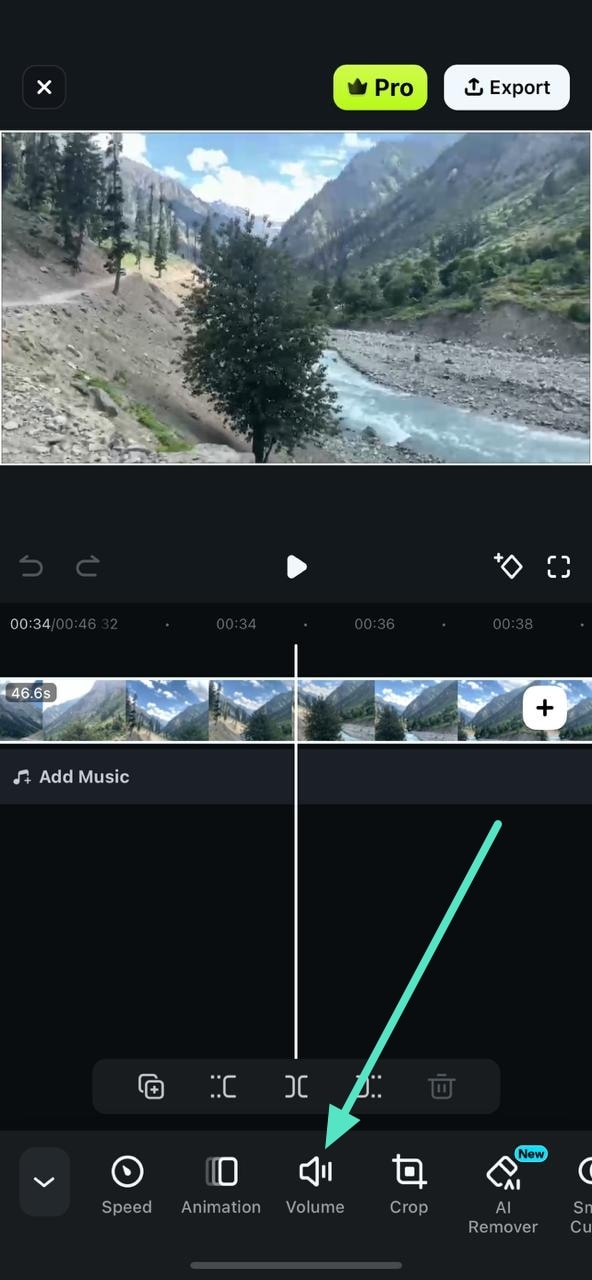
Step 3. Adjust the Volume Settings and Apply the Noise Reduction Feature
Upon reaching the next panel, set the "Volume" and adjust the "Fade-In" and "Fade-Out" settings. When the settings are entered, tap the "Tick" icon to apply the adjustments. Now, locate the "Noise Reduction" feature from the bottom toolbar and tap it for a one-click application.
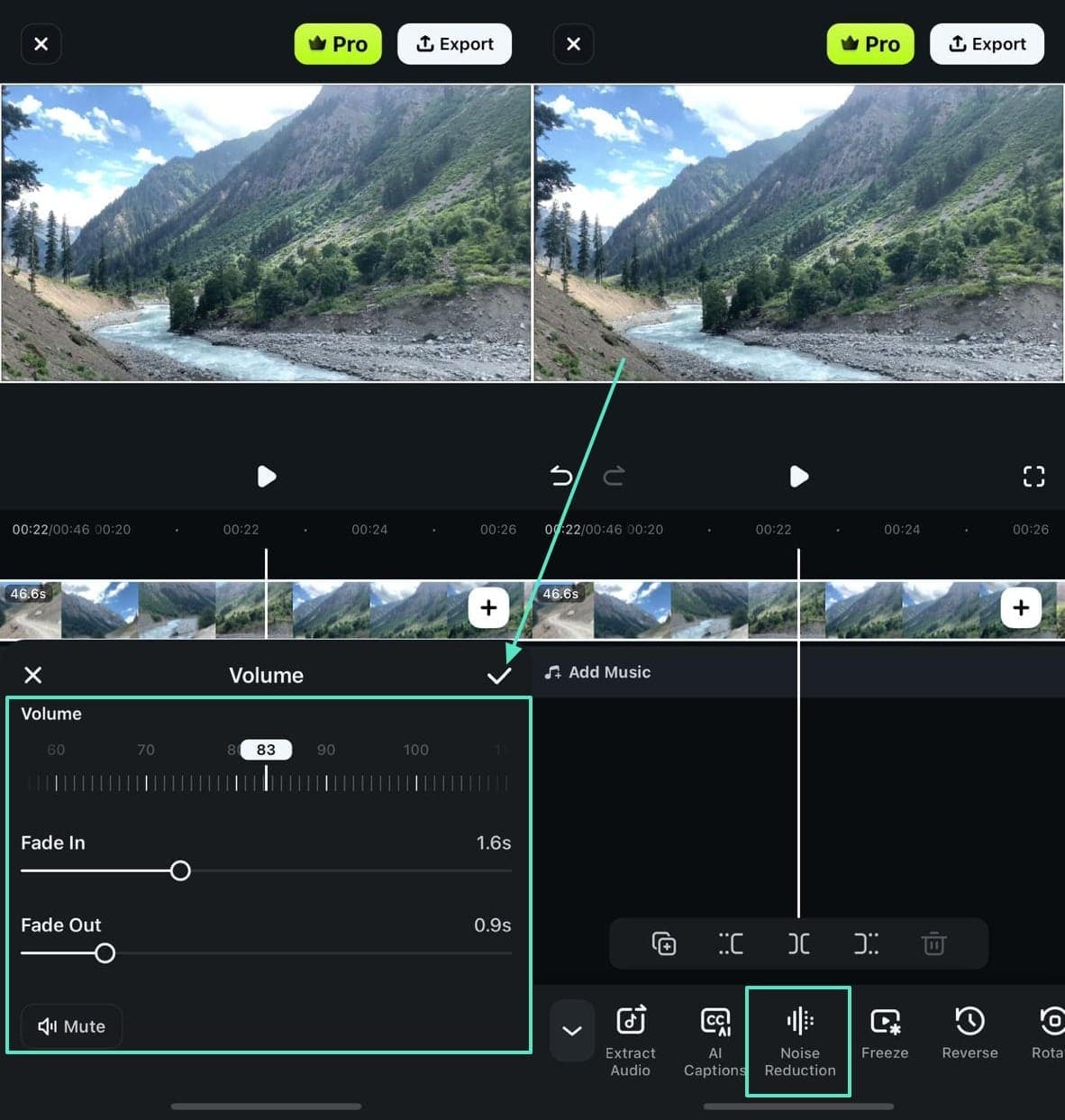
Step 4. Export the Final Video to Your Device
After achieving a perfect video, head to the main editing interface and tap the "Export" button from the top right. When the next window opens, enter the video export settings and use the "Continue Exporting" button at the bottom to save the video to your device.
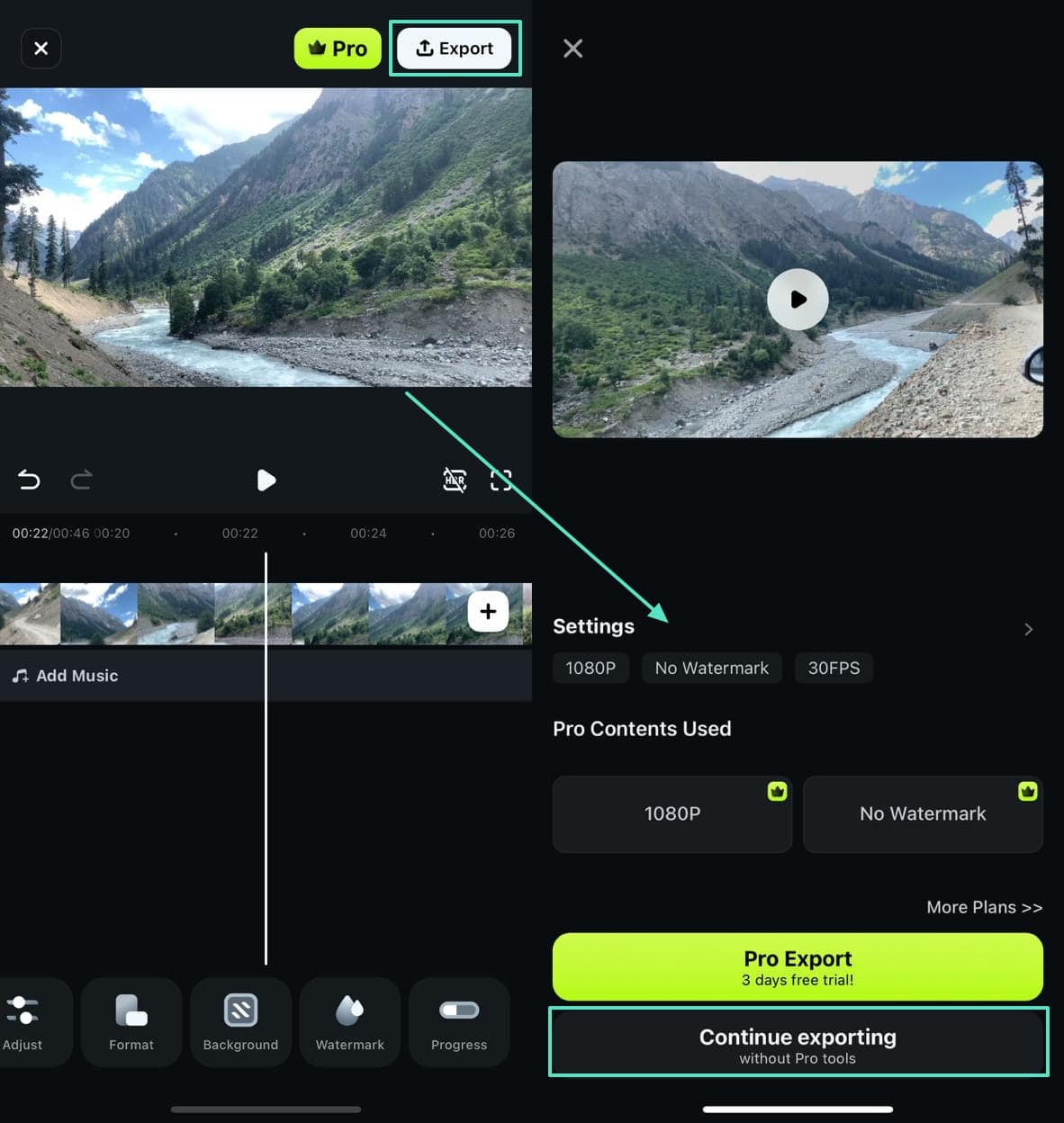
Filmora for Mobile Filmora for Mobile Filmora for Mobile Filmora for Mobile Filmora for Mobile
Perfect Your Audio on Mobile
- • Powerful Brand New AI Features.
- • User-friendly video editing for beginners.
- • Full-featured video editing for professional.
2. Adobe Audition
If you want to edit audio using your favorite audio plugins or hardware, use Adobe Audition, as it supports all types of gears. This sound mixer software lets you dynamically adjust the music and adjust volume. Use the multitrack editor to create layered compositions and take advantage of customizable controls. Moreover, to enhance sound clarity, you can cancel the background sounds and get rid of the white noise.
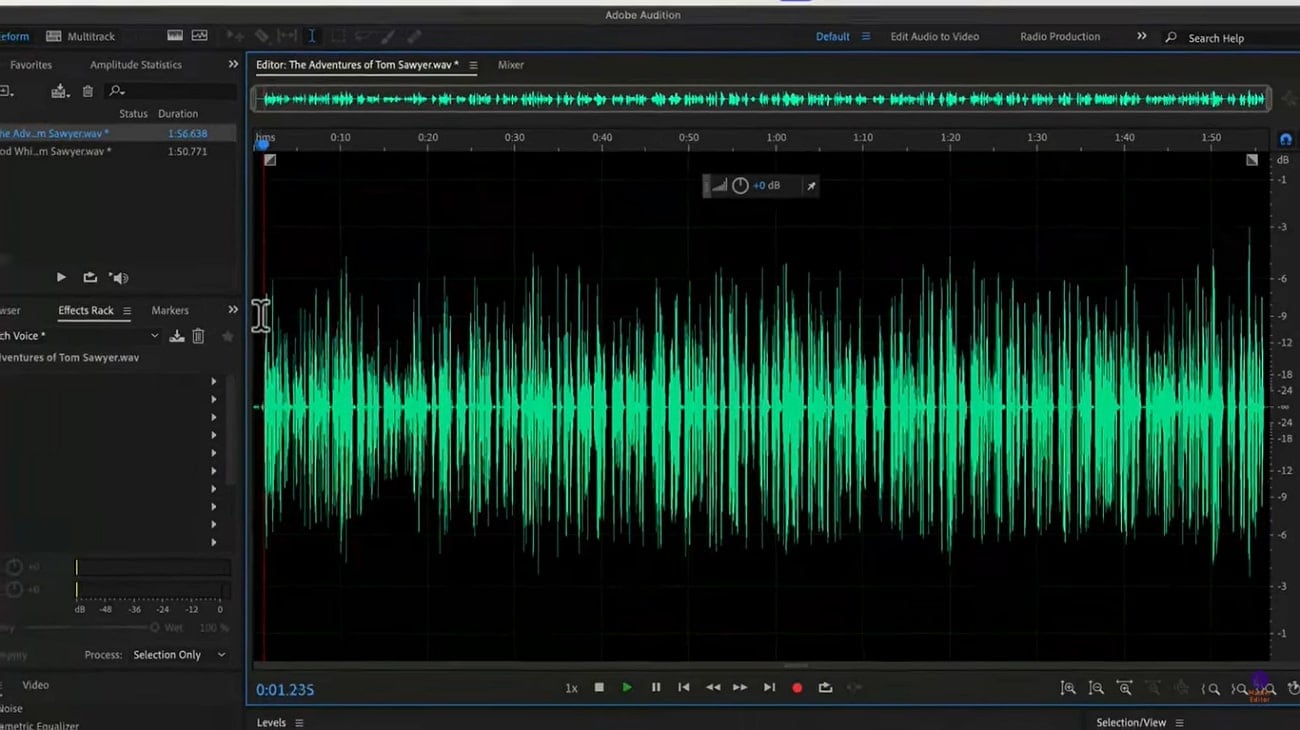
Device Compatibility
Windows, macOS
Pricing Plans
| Plan | Pricing |
| Monthly | $34.49/month |
| Annual (Monthly) | $22.99/month |
| Annual (Yearly) | $263.88/year |
3. Logic Pro X
With this sound mixer, use virtual or realistic musicians to add realistic performances of instruments that are dynamic and tailored to fit the mood of your track. Access the advanced audio tools that help you improve and enhance your creative process at every stage of audio production. Utilize effects like equalization, saturation , or compression to make the sound fuller, more vibrant, and more professional.
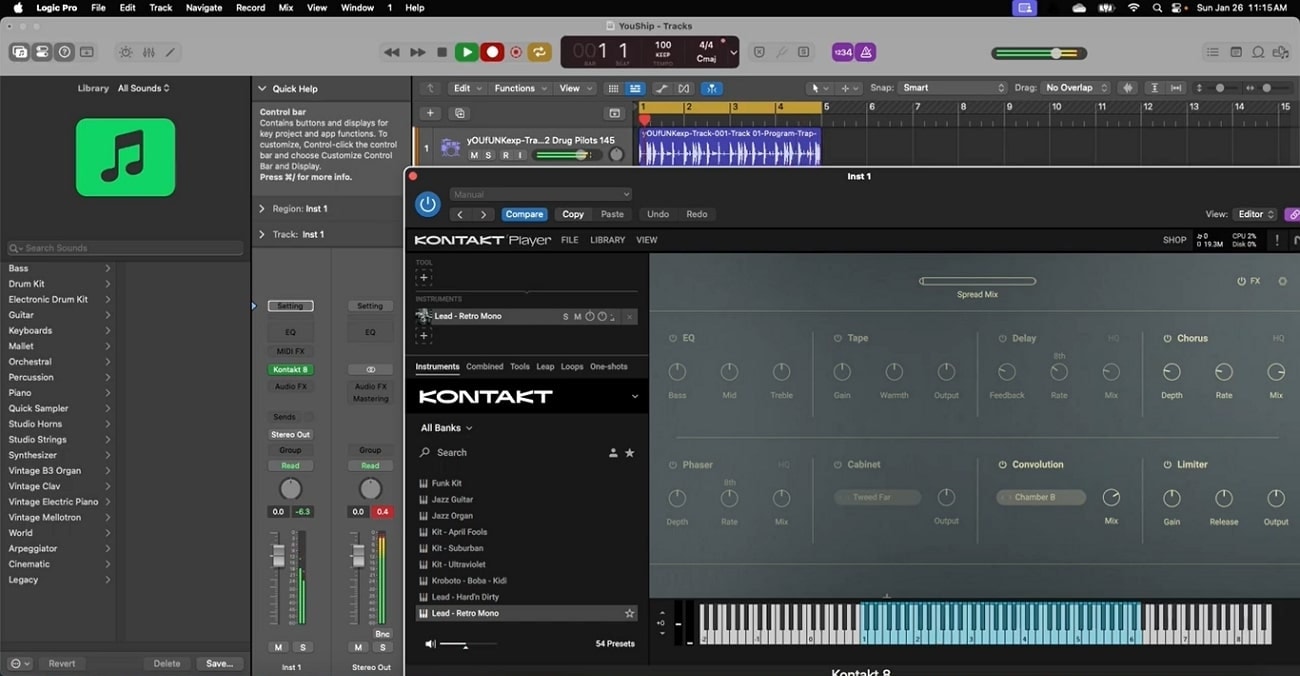
Device Compatibility
macOS, iPadOS
Pricing Plans
$199.99
4. Audacity
When looking for an effective audio editor, use Audacity and enjoy the cutting-edge audio-adjustment features. Using the batch-processing functionality, users can process multiple audio files at the same time as a single file is processed. This audio mixer for PC allows you to leverage the audio recording features if you do not have a pre-existing audio file to mix.
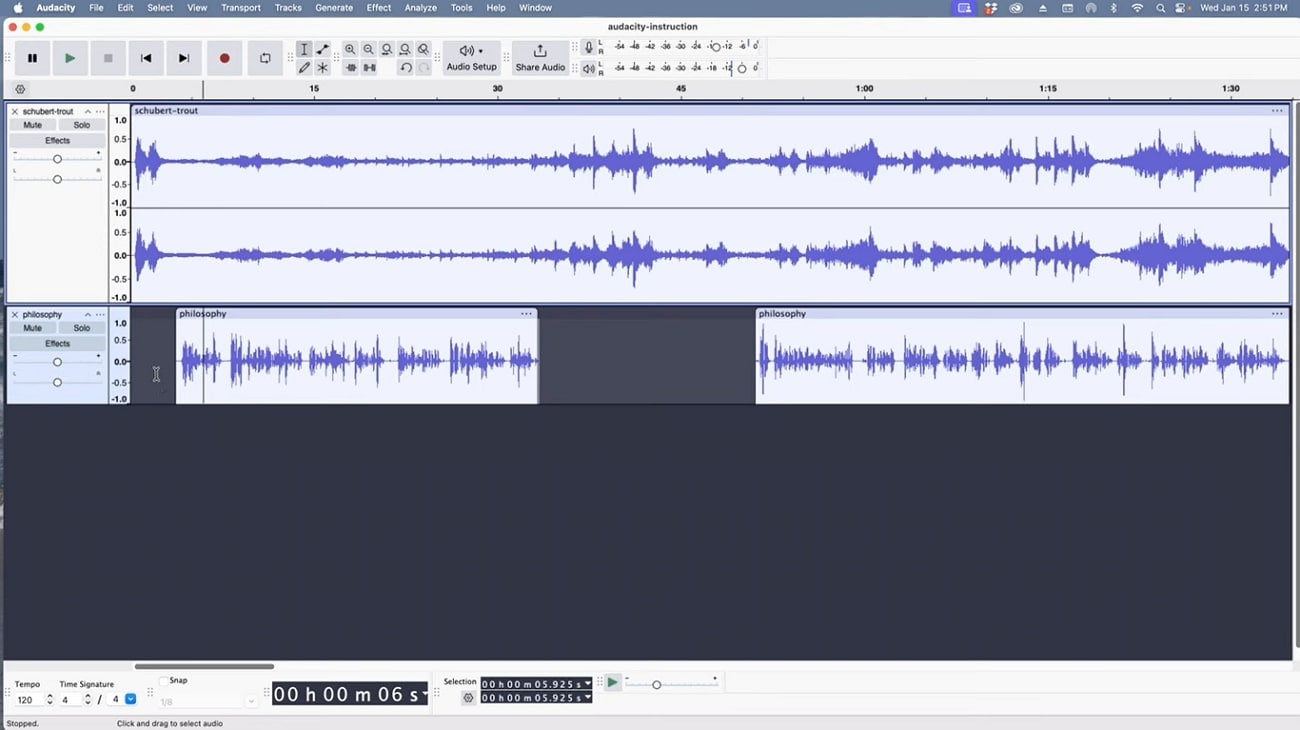
Device Compatibility
Linux, Windows, and macOS.
Pricing Plans
Free
5. Reaper
Reaper is an efficient mixer software that uses system resources effectively, minimizing strain on the computer. The software provides advanced features for managing and directing both audio and MIDI signals. The audio routing directs audio signals from one track or source to another, allowing complex audio processing and mixing. In contrast, MIDI routing manages MIDI data between devices or software.
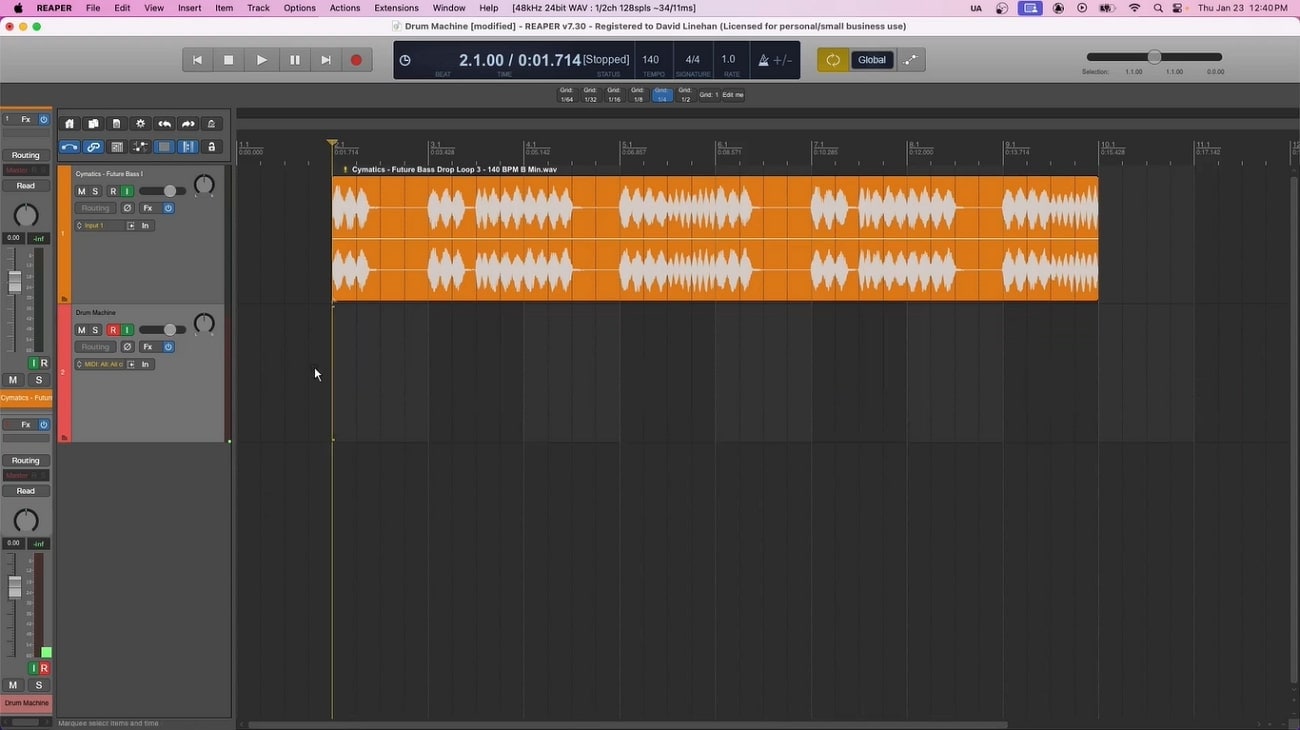
Device Compatibility
Windows, macOS, and Linux
Pricing Plans
| Plan | Pricing |
| Discounted License | $60 |
| Commercial License | $225 |
6. FL Studio
Whether you are a beginner or a professional, FL Studio has a versatile solution for all users. You can maximize your work efficiency by using the batch-processing feature and importing or processing unlimited audio files simultaneously. This audio mixer program lets you quickly analyze your audio with color-coded waveforms that distinguish low, mid, and high frequencies.
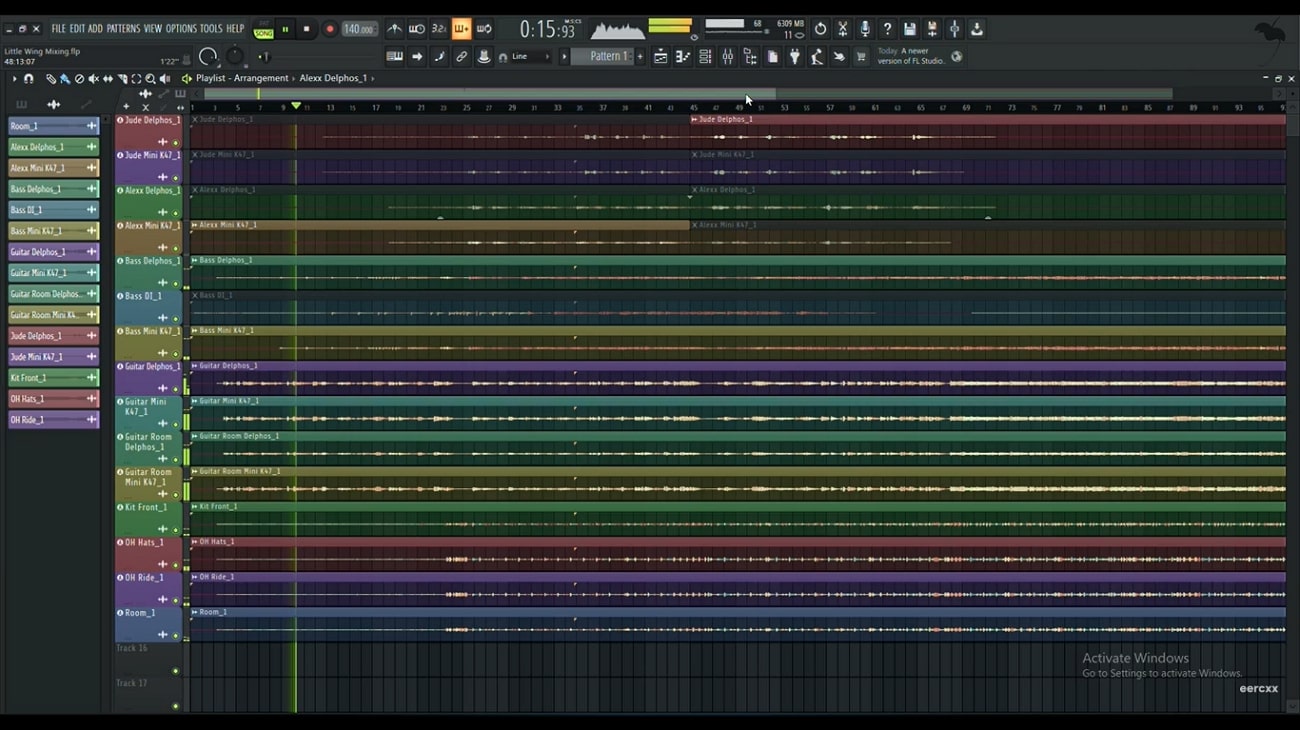
Device Compatibility
Windows, macOS
Pricing Plans
| Plan | Pricing |
| Fruity Edition | $99 |
| Producer Edition | $179 |
| Signature Bundle | $269 |
| All Plugins Edition | $449 |
7. Soundation
With all its cutting-edge audio mixing tools, Soundation is where creativity meets technique. Using collaborative features, users can share their project URLs and work together on the same project. Besides, you can share your presets or sample files, too, with a link. This PC audio mixer gives you a chance to redesign audio with reverb, delay, parametric EQ, and compression effects.
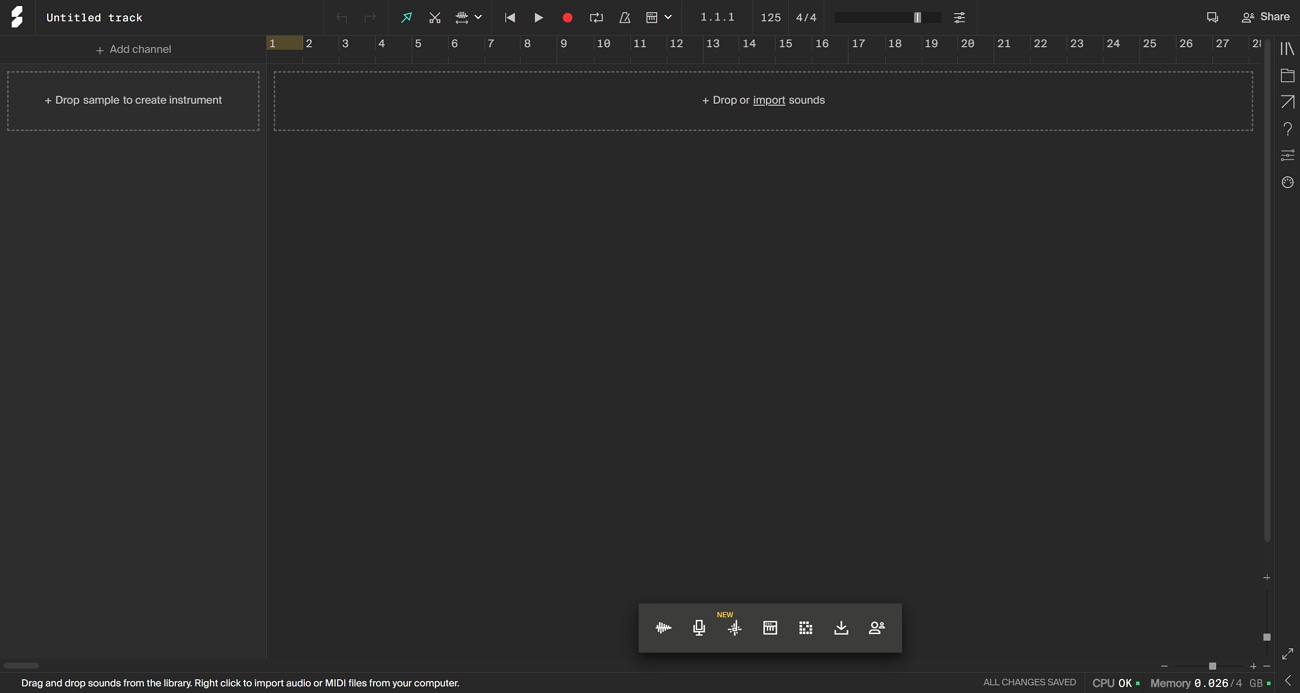
Device Compatibility
Web-based
Pricing Plans
| Plan | Pricing |
| Starter | $4.99/month |
| Creator | $9.99/month |
| Pro | $29.99/month |
8. Ocenaudio
This audio mixer software offers many features, such as equalizers, gain, and filters. It allows you to select multiple parts of an audio file at the same time. You can listen to each section, edit them, or simultaneously apply effects to all selected portions to work efficiently. With Ocenaudio, there are no restrictions on audio length or how many audio files you can edit.
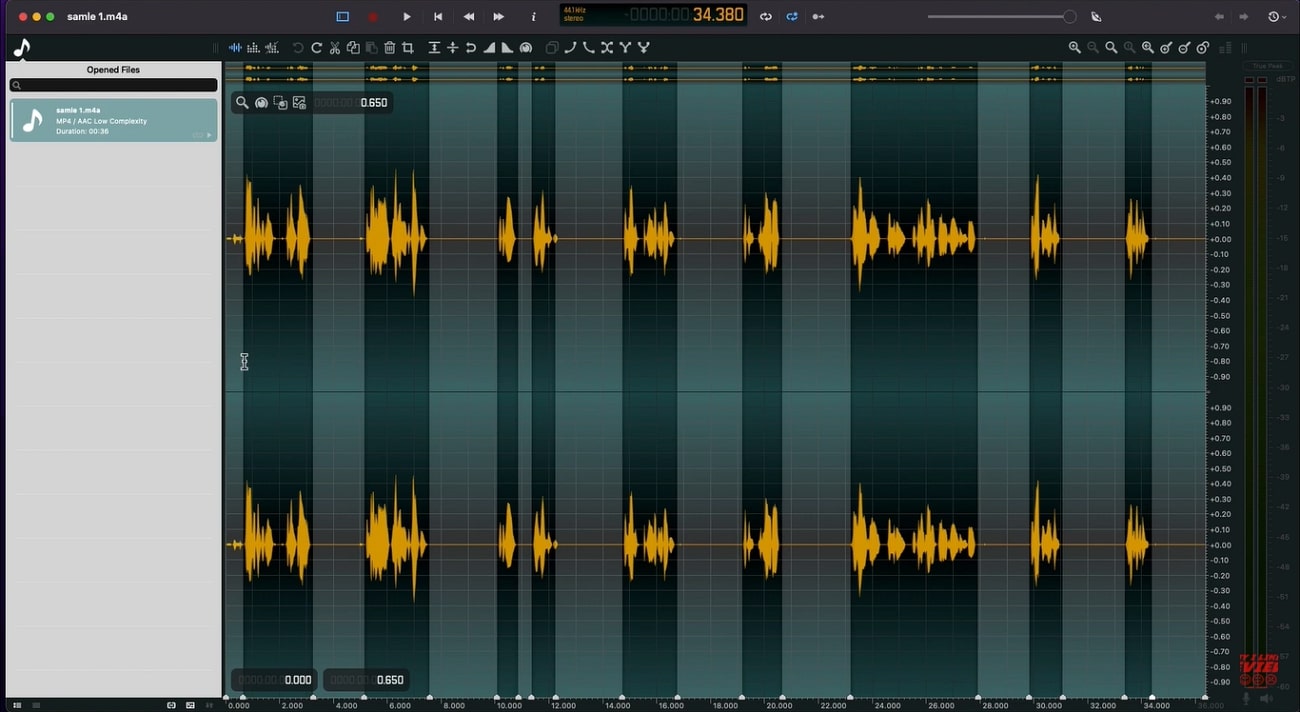
Device Compatibility
Windows, macOS, Linux
Pricing Plans
Free
9. GarageBand
Use GarageBand's effective features and transform your device into a recording studio. You can set the volume on this audio mixer program to change over time automatically during the track rather than manually adjusting it in real-time. If you use a touchscreen instrument, any adjustments you make can be recorded and played back as part of the track, creating dynamic changes in the sound.
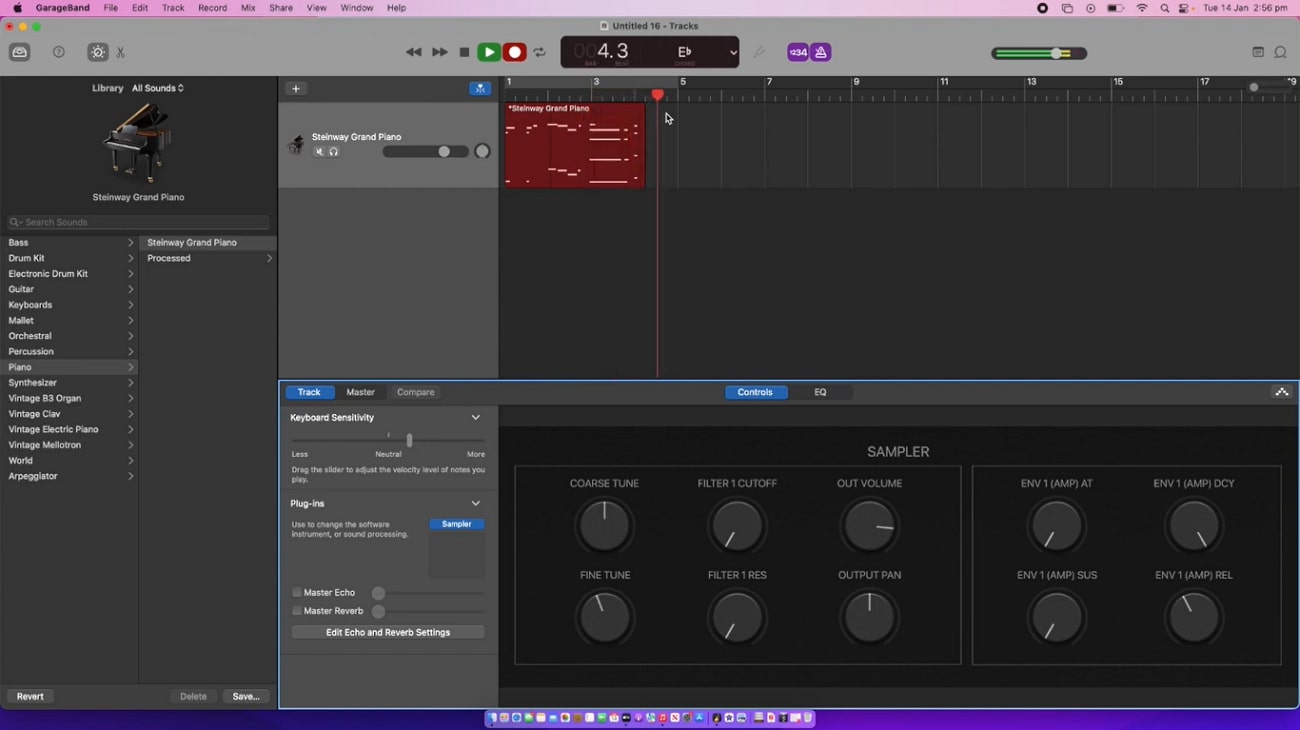
Device Compatibility
macOS
Pricing Plans
Free
10. Avid Pro Tools
Whether you are creating audio or mixing it, Avid Pro Tools has studio-quality utilities for you. This PC audio mixer offers seamless DAW integration to control tracks, plugins, sends, and more directly, making editing and mixing faster. After creating a perfect soundtrack, you can export the results to Apple Music, Spotify, TIDAL, and other platforms.
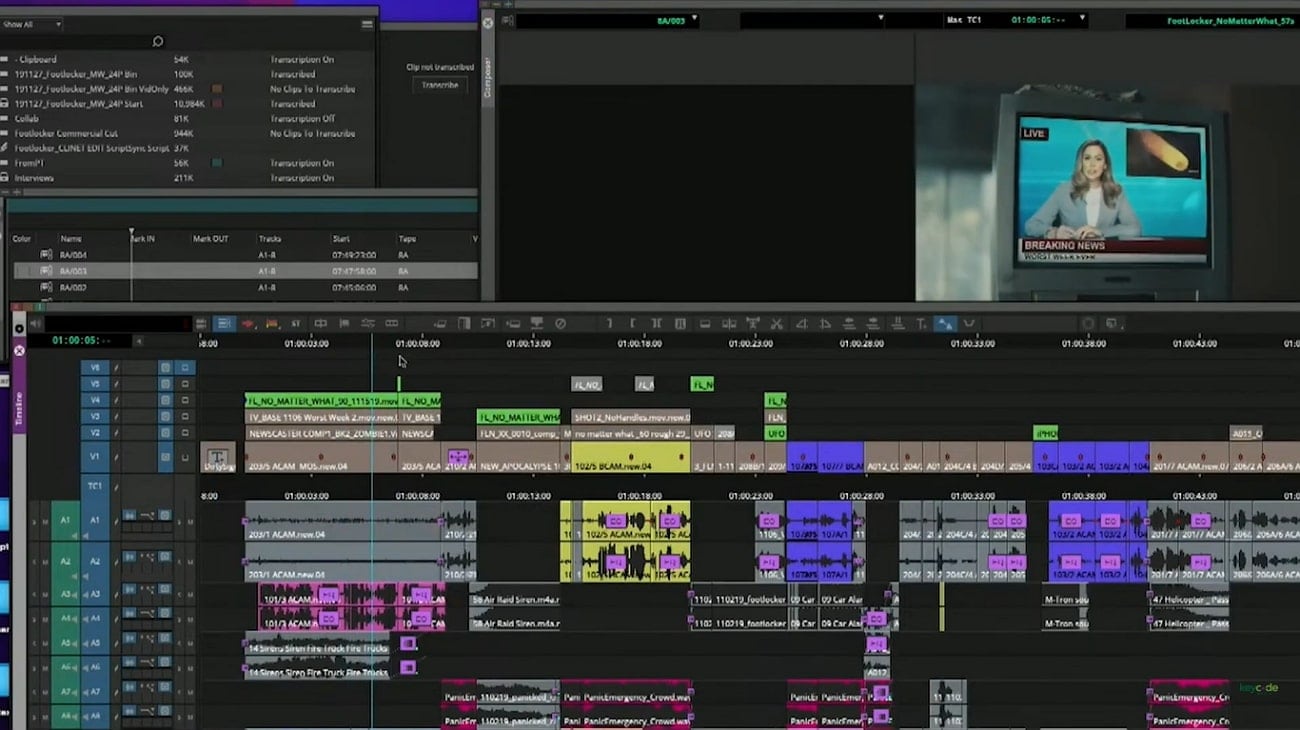
Device Compatibility
Windows, macOS, and Linux
Pricing Plans
| Plan | Pricing |
| Pro Tools Artist - Annual Subscription | €99/year |
| Pro Tools Studio - Annual Subscription | €299/year |
| Pro Tools Ultimate - Annual Subscription | €599/year |
Part 2. Everything You Need to Know About Audio Mixers
Before using an audio tool to edit your files, you must understand what an audio mixer is. Go through the following questions and their detailed answers to get your queries answered.
1. What is an Audio Mixer?
An audio mixer software is a program used for adjusting, mixing, and editing audio tracks. It allows users to control various aspects of sound, such as volume, tone, and effects, to create a polished final audio output. These tools are commonly used in music production, podcasting, live broadcasting, and sound-making.
2. What Does an Audio Mixer Do?
Audio software takes different audio sources and blends them together into a single output, which is essential for making music. It also allows you to adjust the volume of individual tracks or channels to ensure sound balance. Additionally, the Equalizer lets you adjust the bass, midrange, and treble frequencies of each audio channel.
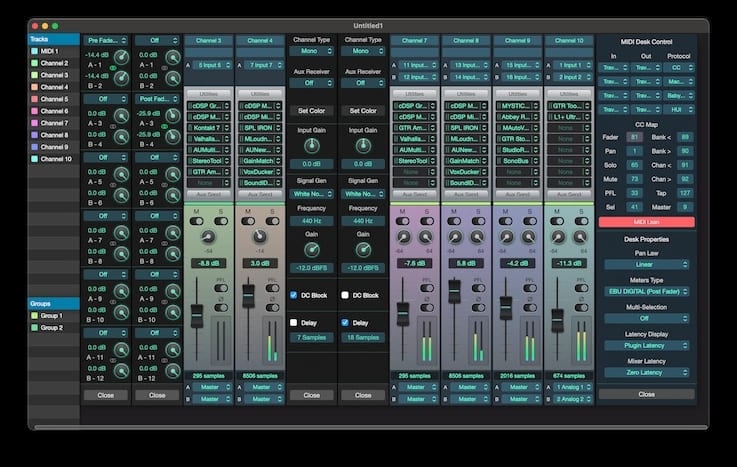
3. What is Audio Mixing Used For?
This technique is used to combine dialogue, sound effects, and background music into the final audio track of a film or TV show. In music production, sound mixer software blends different tracks, like vocals, instruments, and beats, into a polished final song. Such software helps reduce unwanted noises and refine the overall sound quality of the recording.
Part 3. Top Aspects to Consider When Selecting Audio Mixer Software?
When choosing an audio mixer, there are several important factors to consider based on your needs, budget, and the type of work you do. Here is a list of key considerations to help you pick the right audio platform:
- Purpose: If you're creating music, use software with multi-track support and advanced features like instrument plugins and real-time effects. For podcasting or radio, simplicity and voice clarity are key, so decide accordingly.
- Ease of Use: User-friendliness is a major factor in picking a tool, especially if you're new to audio mixing. Thus, pick software with an intuitive interface and easy navigation to get started faster.
- Audio Quality and Features: The quality of the mixing tool is essential for professional audio. Thus, pick software with powerful mixing capabilities, including multi-track mixing and dynamic effects processing.
- Flexibility and Customization: It is best to look for a platform that allows you to customize your workspace to suit your workflow. Customization options like adjustable layouts, keyboard shortcuts, and the ability to save project templates can save time.
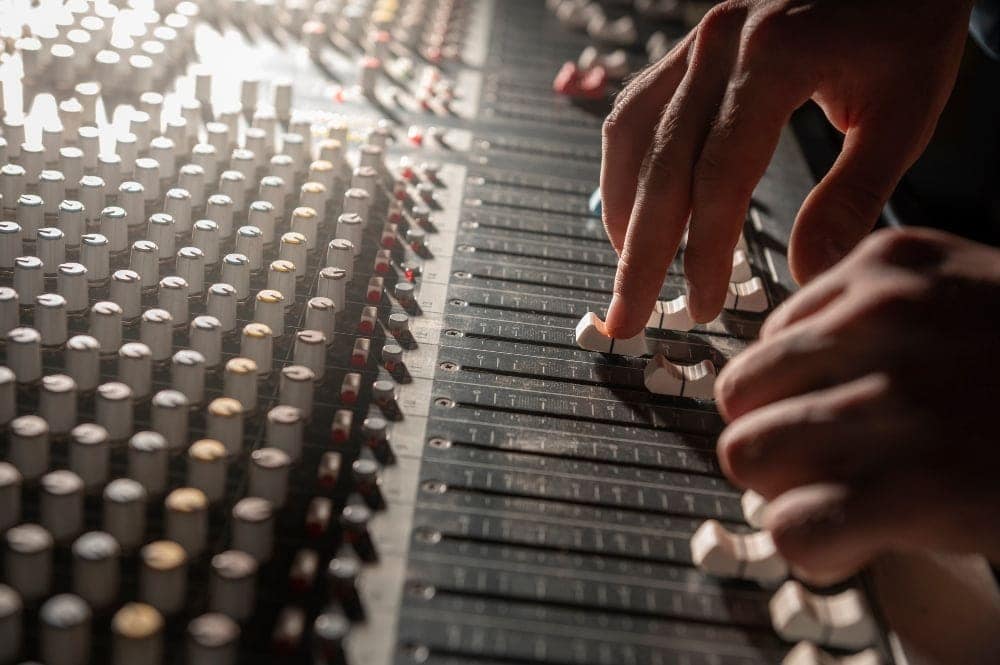
- File Format Support: Audio mixers should support various audio file formats to ensure compatibility with your recordings and exports. No matter what your purpose is, multiple-format export allows you to prepare your mixes for different platforms.
Part 4. Basic Audio Mixer Settings For Professional Results
When using audio mixer software, there are several basic settings and features that are crucial for achieving a clean, balanced mix. Understanding these settings will help you adjust your audio effectively. Therefore, go through the following list to understand the basic things about sound mixers:
- Volume Control: To create uniformity of the sound throughout, it is essential to adjust the volume of the audio. Applying this technique ensures that no individual track is too loud or too soft in relation to others. For an ideal listening experience, the volume should be loud enough for clarity but low enough to avoid distortion.
- Panning: The act of panning the audio places the audio in a stereo field, whether left, right, or center. Proper planning creates a balanced, spacious mix, ensuring no single sound occupies the entire stereo space. Additionally, it ensures that the final sound has a sense of depth and direction.
- Equalization: Equalization or EQ is used to adjust the balance of frequencies in each track. The most common EQ bands are Bass, Midrange, and Treble, used for varying frequencies. After applying for an equalizer, you can ensure that no sound overpowers unless intended.
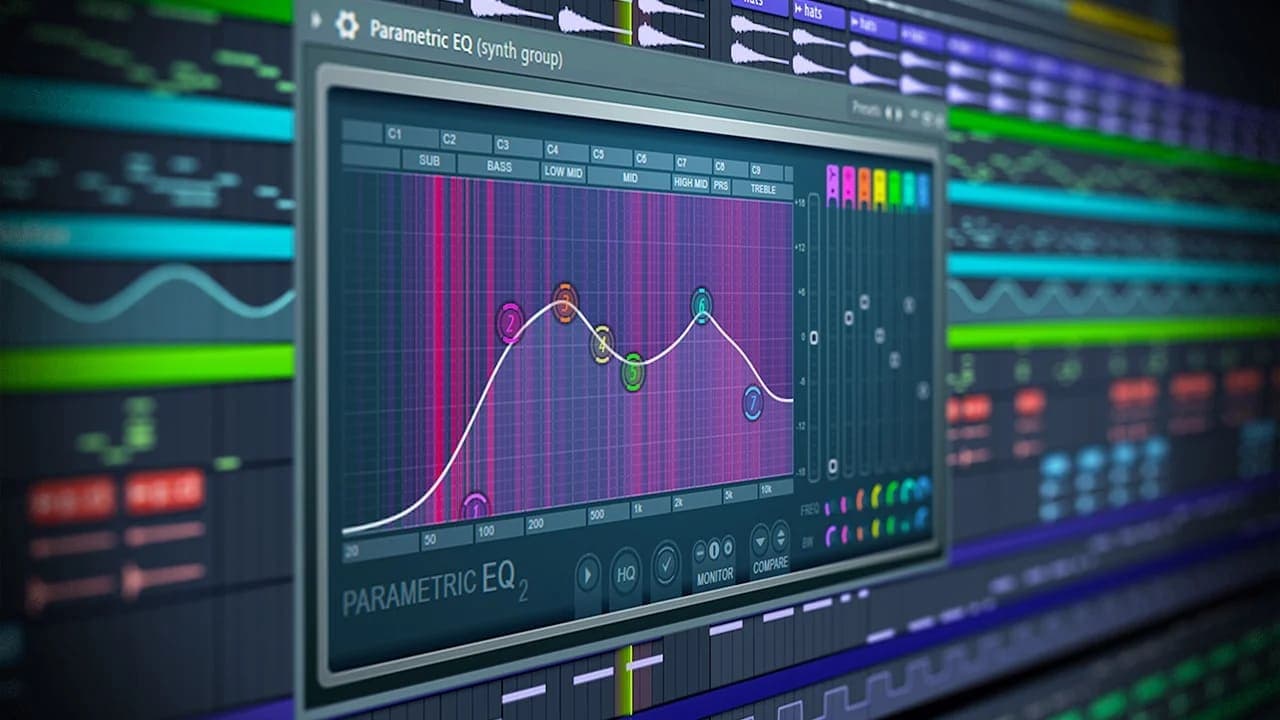
- Sound Effects: The best way to add a professional polish to your audio is by applying the right sound effects. The Reverb effect complements the vibe of the audio by making it feel like it's in a particular location. In addition, compression reduces the dynamic range of the audio, adjusting the loud and quiet parts of the sound.
- Channel: Buses and auxiliary channels allow you to send multiple tracks to the same destination. By sending these tracks at once, you can simplify the mix and process multiple elements of the track. After applying the reverb effect through a sound mixer for PC, you might send all the background vocals to an aux track.
- Automation: If you want to set audio parameters automatically, it is helpful to use the automation utility. This saves you the time and hassle that goes behind adjusting the elements manually. It is typically useful when you need to create mixes where elements come in and out of focus now and then.
- Input Levels: The input levels are important to make sure that your sound resources are clear and have no distortion. It is ideal to keep these levels at an optimal range, usually around 0db, for a clean audio output. Adjusting these settings before recording the audio is the key to getting perfect results.
- Clip Gain and Fader Control: Audio mixer software offers two controls that help you produce well-balanced and professional sound. The Clip gain adjusts the level of an individual audio clip before it reaches the mixer's fader. Meanwhile, the fader controls the final volume level of a track after all effects have been applied.
Part 5. The Key Benefits of Using Audio Mixer Software?
Using sound mixer software provides a variety of benefits, whether you are a podcaster, song maker, or movie director. For a detailed breakdown of why you need such tools, go through the following text.
- Precise Control Over Audio Elements: Audio mixer software allows you to control every aspect of the audio, including volume, panning, and equalization. This level of control helps you fine-tune individual elements in your mix to achieve a professional sound.
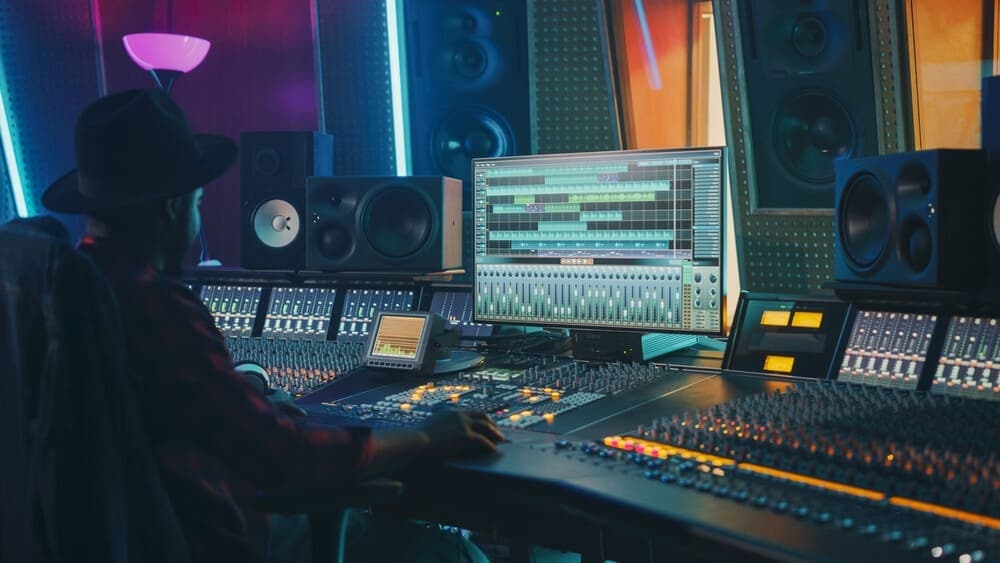
- Multi-Track Mixing: Most mixers offer multi-track mixing to process more than one track at a time. This utility comes in handy while creating a song that has a mix of several instruments and vocals.
- Efficiency and Convenience: By providing a centralized space for all audio tracks, these tools streamline your workflow. Features like drag-and-drop import, automation, and preset effects help you save time.
- Real-Time Feedback and Monitoring: Many audio mixer software offers the features of real-time progress sharing and collaboration. By sharing your projects with colleagues and experts, you can get instant feedback on the required improvements.
- Access to Advanced Effects and Plugins: A good mixer ensures studio polish by providing numerous effects like reverb, compression, and more. The ability to integrate multiple plugins and add dimension to the mix gives it a polished finish.
Conclusion
The usability and optimality of a sound mixer online software depend solely on the extent of the application, available resources, and OS compatibility.
But, it can be said without a doubt that Wondershare Filmora is the most user-friendly, with immense flexibility in terms of uses and compatibility. Its broad-scale usability and promising results make it outshine the most among other audio mixing software.
Powerful AI video editor for all creators






